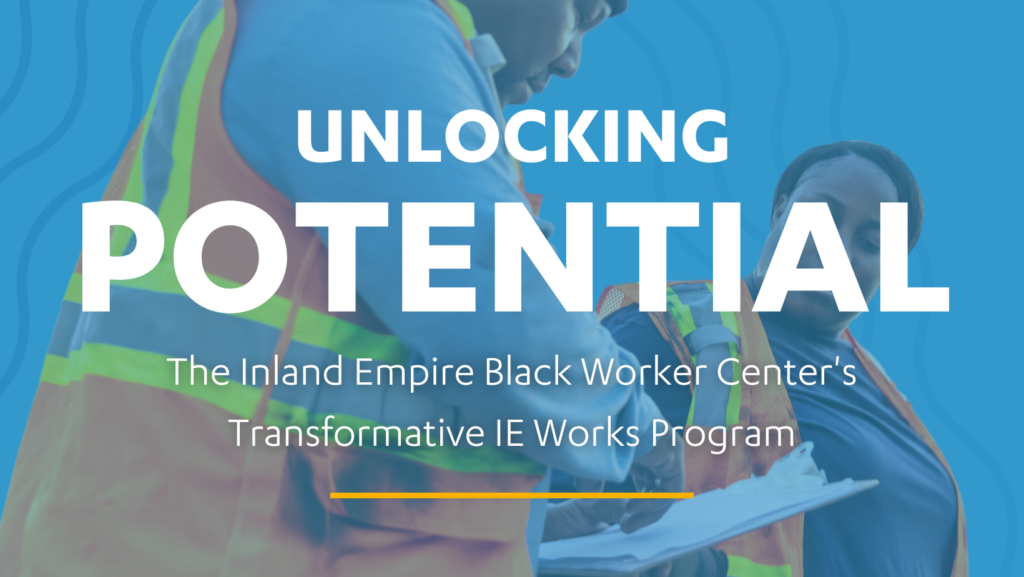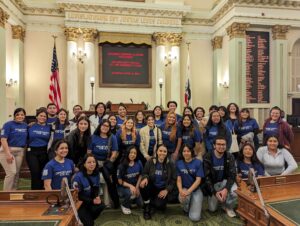New Report Showcases Pre-Apprenticeship Program for Black Workers in Inland Empire

A new report authored by the UCLA Center for the Advancement of Racial Equity (CARE) at Work at the UCLA Labor Center, “Unlocking Potential: The Inland Empire Black Worker Center’s Transformative IE Works Program,” highlights the outcomes of a pioneering workforce development model pioneered by the Inland Empire Black Worker Center (IEBWC).
The Black jobs crisis is alive and well in the Inland Empire, with Black workers having the highest unemployment rates and lowest median earnings across the region. To address this, the newly-formed IEBWC has implemented a pre-apprenticeship program for IE Works—a consortium of water/wastewater utilities and community groups in the Inland Empire—that prioritizes the respect and dignity of Black workers while also preparing them for high road jobs in the water/wastewater sector.
The program aims to provide stability, living wages, and a career path to support families utilizing a three-pronged approach: 1) internships for active college students, 2) pre-apprenticeship for those new to the trades, and 3) apprenticeship programs.

Since March of 2022, two pre-apprenticeship cohorts totaling to 23 participants have completed the program, and a third cohort is currently underway. A year after the first cohort’s graduation, half of the participants either have full time jobs or internships in the water sector.
The program shows that in order for workforce development programs to successfully serve Black workers, they must be driven by a diverse group of community-centered organizations advancing a Black worker center model for workforce development.

Among other findings, the report notes that the IE Works pre-apprenticeship program has been a success both quantitatively as it relates to participant outcomes over time, as well as qualitatively as it relates to the experiences of the workers in the program itself. The report also notes the need for continued and deeper investment in Black worker center-anchored workforce development programs.
The methods employed by IEBWC conveners are unique to their role as a Black worker center. This community-centered workforce development model, characterized by a strong sense of dignified and democratic community, wrap-around services, and strategic partnerships, makes this program both unique and successful.
The authors make two overarching recommendations: develop a strong pathway to a full employment model for IE Works, and prioritize non-restrictive funds for increased stipends and wrap around support.
The report was authored by Omer (Muhammad) Sohail and Deja Thomas.


